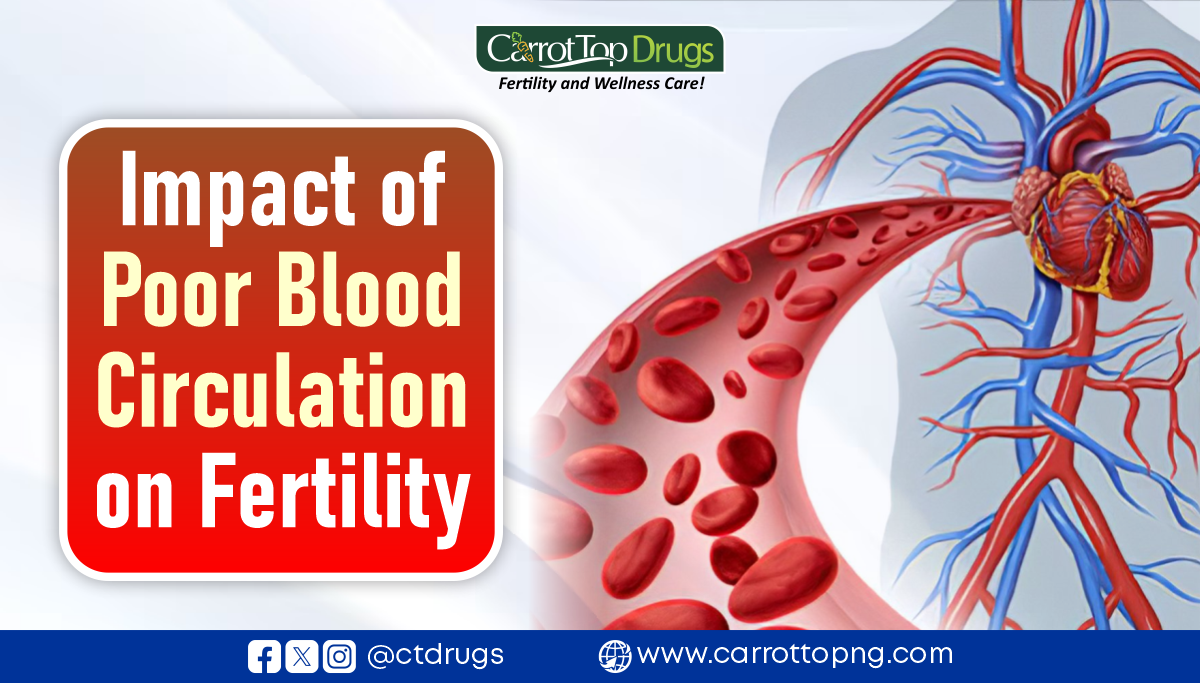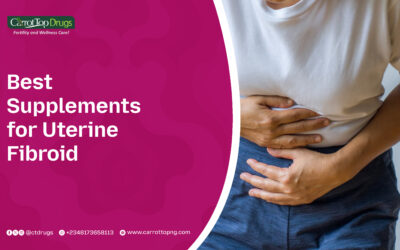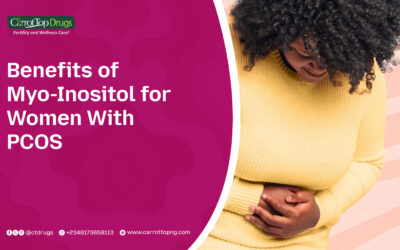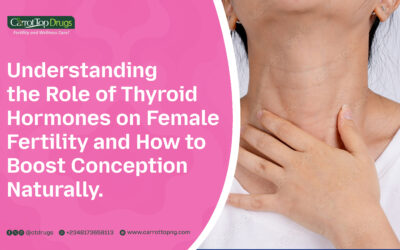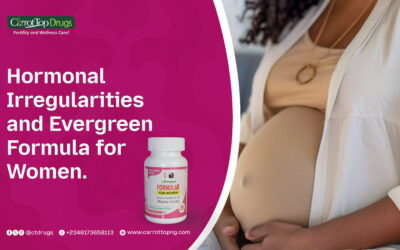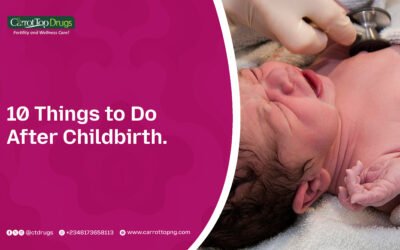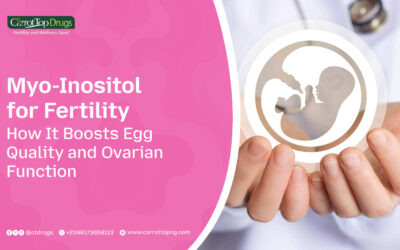Introduction
Blood circulation is a fundamental aspect of our health, ensuring that oxygen and nutrients reach every part of the body. When this system falters, it can have a variety of health implications, one of which is fertility. The impact of poor blood circulation on fertility is significant, affecting both men and women. In this article, we will examine the impact of poor blood circulation on fertility and the possible ways to deal with them.
Components of Blood Circulation
Blood circulation involves several key components: the heart, blood vessels (arteries, veins, and capillaries), and blood itself. The heart acts as a pump, driving blood through a network of vessels that deliver oxygen and nutrients to cells and remove waste products. Efficient functioning of these components is essential for maintaining good health and, by extension, fertility.
Roles of Blood Circulation in Fertility
Oxygen and Nutrient Delivery:
Blood circulation ensures that reproductive organs receive the oxygen and nutrients they need to function optimally. This is critical for processes like sperm production in men and egg development in women.
Hormone Transport:
Hormones essential for reproduction are transported via the bloodstream. Poor circulation can disrupt this transport, leading to hormonal imbalances that affect fertility.
Waste Removal:
Effective blood flow helps in the removal of metabolic waste from reproductive tissues. Accumulation of waste products can create a toxic environment that impairs fertility.
Temperature Regulation:
Proper blood circulation helps regulate the temperature of reproductive organs. For example, the testes need to be cooler than the rest of the body for optimal sperm production, which is facilitated by good blood flow.
Causes of Poor Blood Circulation
Several factors can lead to poor blood circulation, including:
Sedentary Lifestyle:
Lack of physical activity is a significant contributor to poor blood circulation in today’s sedentary society. With the rise of desk-bound jobs and technological advancements, many individuals spend prolonged periods sitting or lying down, leading to decreased physical activity levels.
Extended periods of sedentary behavior, such as sitting at a desk or lounging on a couch, cause sluggish blood flow, especially in the lower extremities. This inactivity hampers the body’s natural blood circulation mechanism, as inactive muscles fail to assist in returning blood to the heart.
Poor Diet:
Diets high in saturated fats, sugars, and salt are significant contributors to poor blood circulation. Consuming foods rich in saturated fats, such as fried foods, processed meats, and high-fat dairy products, can lead to the accumulation of cholesterol in the bloodstream. Over time, this excess cholesterol can form plaque deposits along the walls of arteries, a condition known as atherosclerosis.
The presence of plaque in the arteries narrows the blood vessels, restricting the flow of blood to vital organs and tissues. This reduction in blood flow diminishes the delivery of oxygen and nutrients to cells throughout the body, including those involved in reproductive functions. Consequently, impaired circulation can adversely affect fertility by compromising the health and functionality of the reproductive organs (American Heart Association).
.
Smoking:
Smoking is one of the most detrimental habits for blood circulation and overall health. The chemicals present in tobacco smoke, such as nicotine and carbon monoxide, wreak havoc on the cardiovascular system, leading to significant impairments in blood flow.
Nicotine, a highly addictive substance found in cigarettes, constricts blood vessels, reducing their diameter and impeding the smooth flow of blood. This vasoconstrictive effect increases blood pressure and places added strain on the heart, compromising its ability to pump blood efficiently throughout the body. Consequently, vital organs and tissues, including those involved in reproductive functions, may receive inadequate oxygen and nutrients, adversely impacting fertility.
Moreover, carbon monoxide, a toxic gas present in cigarette smoke, binds to hemoglobin in red blood cells with greater affinity than oxygen. This reduces the oxygen-carrying capacity of the blood, leading to tissue hypoxia and further exacerbating circulatory problems. In the context of fertility, insufficient oxygen supply to reproductive organs can impair their function and compromise reproductive outcomes.
Chronic Conditions:
Chronic conditions like diabetes, hypertension, and atherosclerosis significantly contribute to poor blood circulation. These conditions often coexist and exacerbate each other, leading to profound impairments in vascular health and blood flow.
Diabetes, characterized by high blood sugar levels, damages blood vessels over time. This damage leads to stiff and narrow vessel walls, hindering smooth blood flow and potentially causing peripheral artery disease (PAD), reducing blood flow to the extremities and impacting reproductive organ function and fertility outcomes.
Hypertension, or high blood pressure, damages artery walls, leading to inflammation and arterial plaque formation. Over time, this narrows and rigidifies blood vessels, impeding blood flow to vital organs, including those involved in reproduction. Atherosclerosis, characterized by plaque buildup in arteries, further obstructs blood flow, reducing oxygen and nutrient delivery and compromising reproductive organ health and function.
Obesity:
Obesity is a significant contributor to poor blood circulation, posing detrimental effects on cardiovascular health and overall well-being. Excess body weight places added strain on the heart and blood vessels, leading to various circulatory complications that can affect fertility.
One of the primary mechanisms through which obesity impairs circulation is by increasing the workload on the heart. Adipose tissue, or body fat, requires a greater blood supply for oxygen and nutrient delivery. As a result, the heart must pump harder to meet the increased metabolic demands, leading to elevated blood pressure and strain on the cardiovascular system.
Moreover, obesity is associated with chronic inflammation and insulin resistance, both of which contribute to endothelial dysfunction and arterial stiffness. Inflammation damages the delicate endothelial lining of blood vessels, promoting the formation of arterial plaque and narrowing the arteries. This constriction impedes blood flow to vital organs and tissues, including those involved in reproductive functions.
Impact of Poor Blood Circulation on Fertility
Impact on Male Fertility
The impact of poor blood circulation on fertility in men is profound. Poor circulation can lead to erectile dysfunction, making it difficult to achieve or maintain an erection. This directly affects the ability to conceive. Additionally, inadequate blood flow to the testes can reduce sperm production and quality, lowering the chances of successful fertilization.
Erectile Dysfunction
Poor blood circulation can lead to erectile dysfunction, a major factor in male infertility. When blood flow to the penis is restricted, achieving or maintaining an erection becomes challenging, thereby reducing the likelihood of successful conception. Erectile dysfunction, a common consequence of vascular issues, underscores the significant impact of poor blood circulation on fertility in men.
Poor Sperm Production
Furthermore, the impact of poor blood circulation on fertility extends to sperm production. The testes require a constant supply of oxygen-rich blood to produce healthy sperm. Inadequate blood flow can result in lower sperm count and reduced sperm motility, both of which are critical for fertilization. Thus, the impact of poor blood circulation on fertility can be seen in the diminished quality and quantity of sperm.
Poor Health of Reproductive Organs
In addition, poor blood circulation affects the overall health of the reproductive organs. The testes, being highly sensitive to temperature changes, rely on proper blood flow to maintain an optimal environment for sperm production. The impact of poor blood circulation on fertility is evident as it disrupts this delicate balance, potentially leading to infertility.
Impact on Female Fertility
The impact of poor blood circulation on fertility in women is equally significant. Poor circulation to the uterus and ovaries can cause menstrual irregularities, affecting ovulation and reducing the chances of conception. Furthermore, insufficient blood flow can hinder the implantation of a fertilized egg and increase the risk of miscarriage, as the developing embryo may not receive the necessary nutrients and oxygen.
Menstrual Irregularities
The impact of poor blood circulation on fertility in women manifests through menstrual irregularities. Adequate blood flow to the reproductive organs is essential for regular menstrual cycles. When circulation is compromised, hormonal imbalances can occur, disrupting ovulation and making it difficult for women to conceive. This highlights the critical impact of poor blood circulation on fertility.
Impaired Implantation
Additionally, the implantation of a fertilized egg can be adversely affected by poor blood circulation. The uterus requires a rich blood supply to provide the necessary nutrients and oxygen for the developing embryo. Poor circulation can result in an inhospitable uterine environment, preventing successful implantation and leading to infertility. Thus, the impact of poor blood circulation on fertility is evident in these early stages of pregnancy.
Increased Risk of Miscarriage
Moreover, the risk of miscarriage is heightened due to poor blood circulation. Insufficient blood flow can lead to inadequate support for the developing embryo, increasing the likelihood of pregnancy loss. The impact of poor blood circulation on fertility extends to maintaining a healthy pregnancy, underscoring the importance of vascular health in reproductive success.
Possible Solutions to Poor Circulation
Regular Exercise:
Regular physical activity is crucial for promoting overall health and well-being, including reproductive health. Exercise helps stimulate blood circulation throughout the body, ensuring that oxygen and nutrients are efficiently delivered to all tissues, including the reproductive organs. Aerobic exercises such as walking, swimming, or cycling are particularly effective in improving cardiovascular health and enhancing blood flow. These activities not only strengthen the heart and blood vessels but also increase the production of nitric oxide, a compound that helps dilate blood vessels, improving blood flow.
Furthermore, regular exercise has been shown to regulate hormone levels, reduce stress, and promote a healthy body weight, all of which are essential factors for optimal fertility. By incorporating exercise into their daily routine, individuals can enhance their cardiovascular health, improve blood circulation to the reproductive organs, and potentially increase their chances of conception.
Healthy Diet:
A balanced and nutritious diet plays a vital role in supporting cardiovascular health and blood circulation, both of which are crucial for fertility. Consuming a variety of fruits, vegetables, whole grains, and lean proteins provides essential nutrients such as vitamins, minerals, antioxidants, and fiber, which support overall vascular health. Foods rich in antioxidants, such as berries, leafy greens, and nuts, help reduce oxidative stress and inflammation in the body, improving blood vessel function and circulation.
Additionally, incorporating omega-3 fatty acids from sources like fatty fish, flaxseeds, and walnuts into the diet can help lower blood pressure, reduce cholesterol levels, and improve blood flow. Nitric oxide precursors found in foods like beets, garlic, and dark chocolate can also help dilate blood vessels, enhancing circulation. By adopting a healthy eating pattern that prioritizes whole, nutrient-dense foods, individuals can optimize their vascular health, support fertility, and improve their chances of conceiving.
Maintaining a Healthy Weight:
Maintaining a healthy weight is essential for optimizing blood circulation and fertility. Excess body weight, especially visceral fat around the abdomen, can increase the risk of cardiovascular diseases and impair blood flow to the reproductive organs. Obesity is associated with chronic inflammation, insulin resistance, and hormonal imbalances, all of which can negatively impact vascular health and fertility.
By achieving and maintaining a healthy weight through a combination of a balanced diet and regular exercise, individuals can reduce the strain on their cardiovascular system, improve blood circulation, and enhance reproductive health. Weight loss can lead to improvements in insulin sensitivity, blood pressure, and lipid profiles, all of which contribute to better vascular function and fertility outcomes.
Smoking Cessation:
Quitting smoking is one of the most important steps individuals can take to improve blood circulation and fertility. Tobacco smoke contains thousands of harmful chemicals, including nicotine and carbon monoxide, which constrict blood vessels, increase blood pressure, and damage the endothelial lining of arteries. Smoking also reduces the oxygen-carrying capacity of the blood, leading to tissue hypoxia and impaired circulation.
By quitting smoking, individuals can significantly reduce their risk of developing cardiovascular diseases such as atherosclerosis, peripheral artery disease, and hypertension, all of which can negatively impact fertility. Quitting smoking also improves the function of the endothelium, enhances blood vessel dilation, and reduces inflammation, all of which contribute to better blood circulation and reproductive health. Additionally, quitting smoking can improve sperm quality and menstrual regularity, increasing the chances of successful conception.
Stress Management:
Chronic stress can have detrimental effects on cardiovascular health and blood circulation, which can in turn affect fertility. Stress activates the body’s “fight or flight” response, leading to the release of stress hormones such as cortisol and adrenaline. These hormones can constrict blood vessels, increase heart rate, and elevate blood pressure, all of which negatively impact blood flow to the reproductive organs.
Practicing stress management techniques such as meditation, yoga, deep breathing exercises, or mindfulness can help counteract the effects of chronic stress on the cardiovascular system. These techniques promote relaxation, reduce muscle tension, and lower stress hormone levels, thereby improving blood vessel function and enhancing blood circulation to the reproductive organs.
Medical Treatment for Underlying Conditions:
Treating underlying medical conditions such as diabetes, hypertension, or atherosclerosis is essential for improving blood circulation and fertility. Proper management of these conditions through medication, lifestyle modifications, and regular medical monitoring can help optimize vascular health and reproductive function.
For example, individuals with diabetes may benefit from medications that help control blood sugar levels, as well as lifestyle changes such as diet and exercise to improve insulin sensitivity. Similarly, medications to lower blood pressure or cholesterol levels may be prescribed to individuals with hypertension or atherosclerosis, respectively. In some cases, surgical interventions or procedures such as angioplasty or bypass surgery may be necessary to restore proper blood flow to the reproductive organs.
By addressing underlying medical conditions and following a comprehensive treatment plan under the guidance of healthcare professionals, individuals can improve their vascular health, enhance blood circulation, and increase their chances of conceiving successfully.
Supplements and Herbal Remedies:
Certain supplements and herbal remedies may offer additional support for improving blood circulation and fertility. For example, supplements containing ingredients like L-arginine, Coenzyme Q10 (CoQ10), or vitamin E have been shown to support cardiovascular health and enhance blood flow. L-arginine is a precursor to nitric oxide, a molecule that helps relax blood vessels and improve circulation. CoQ10 is an antioxidant that supports energy production in cells, including those in the cardiovascular system, while vitamin E helps protect blood vessels from oxidative damage.
Evergreen Formular for Men, Evergreen Action For Men, Evergreen Formular for Women and Evergreen CM contain these nutrients for maximal blood flow to reproductive organs.
Conclusion
The impact of poor blood circulation on fertility is a critical issue that deserves attention. Both men and women can experience significant reproductive challenges due to inadequate blood flow. By addressing factors that contribute to poor circulation, such as adopting a healthier lifestyle, improving diet, and managing stress, individuals can enhance their fertility prospects. Understanding and mitigating the impact of poor blood circulation on fertility is essential for anyone looking to start a family.
FAQs
Q. Can poor blood circulation affect both male and female fertility?
A. Yes, poor blood circulation can affect fertility in both men and women by impairing the function of reproductive organs.
Q. How can I improve my blood circulation to boost fertility?
A. Regular exercise, a healthy diet, quitting smoking, and managing stress can improve blood circulation and boost fertility.
Q. Is poor circulation a common cause of infertility?
A. Yes, poor circulation is a common but often overlooked cause of infertility in both men and women.
Q. Can medical treatments help with poor blood circulation?
A. Yes, medical treatments such as medications and physical therapy can help improve blood circulation.
Q. Are there specific symptoms that indicate poor blood circulation affecting fertility?
A. Symptoms such as cold extremities, fatigue, swelling, and erectile dysfunction in men or menstrual irregularities in women can indicate poor circulation affecting fertility.

